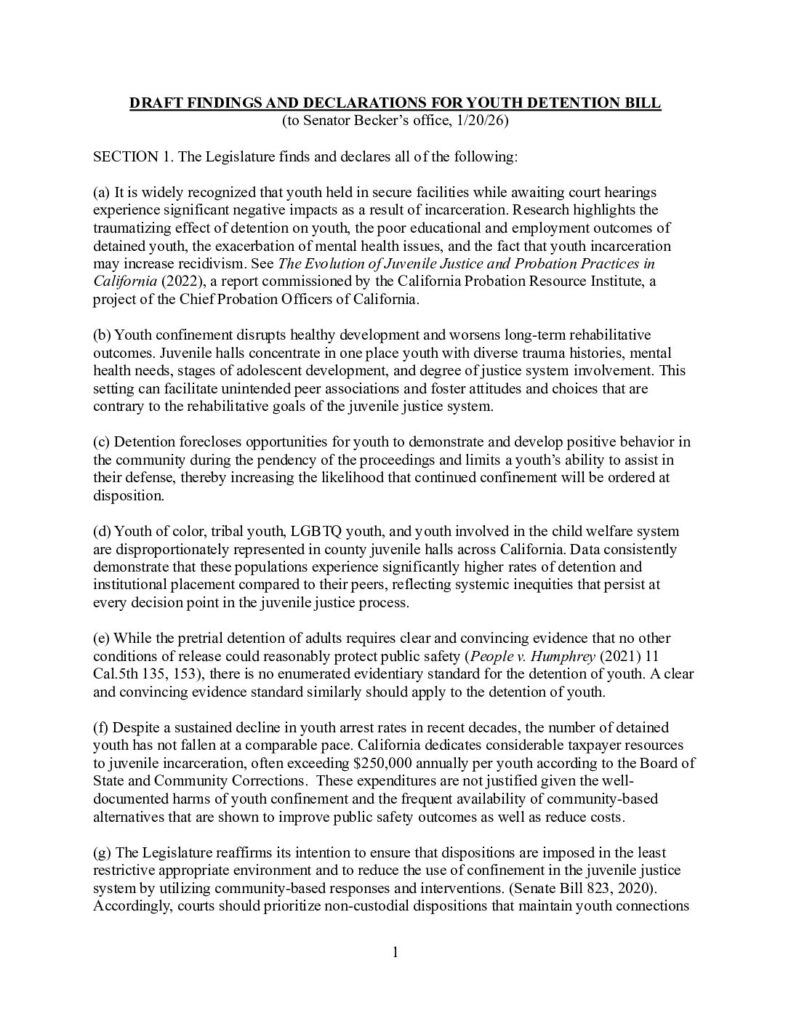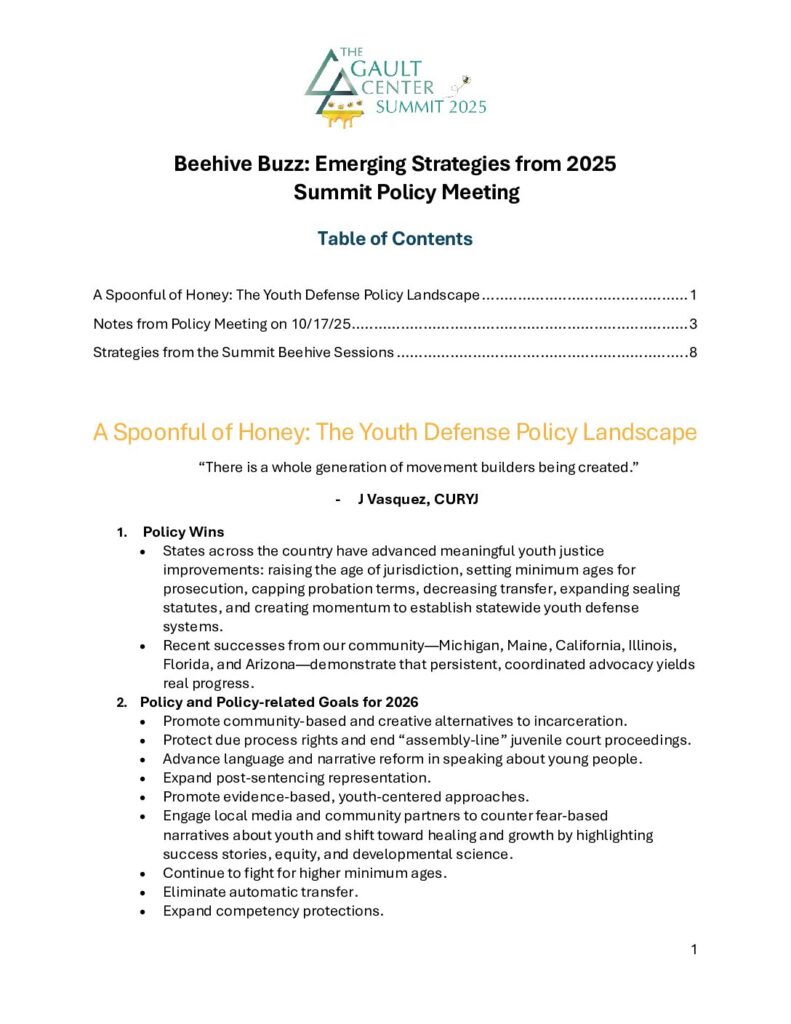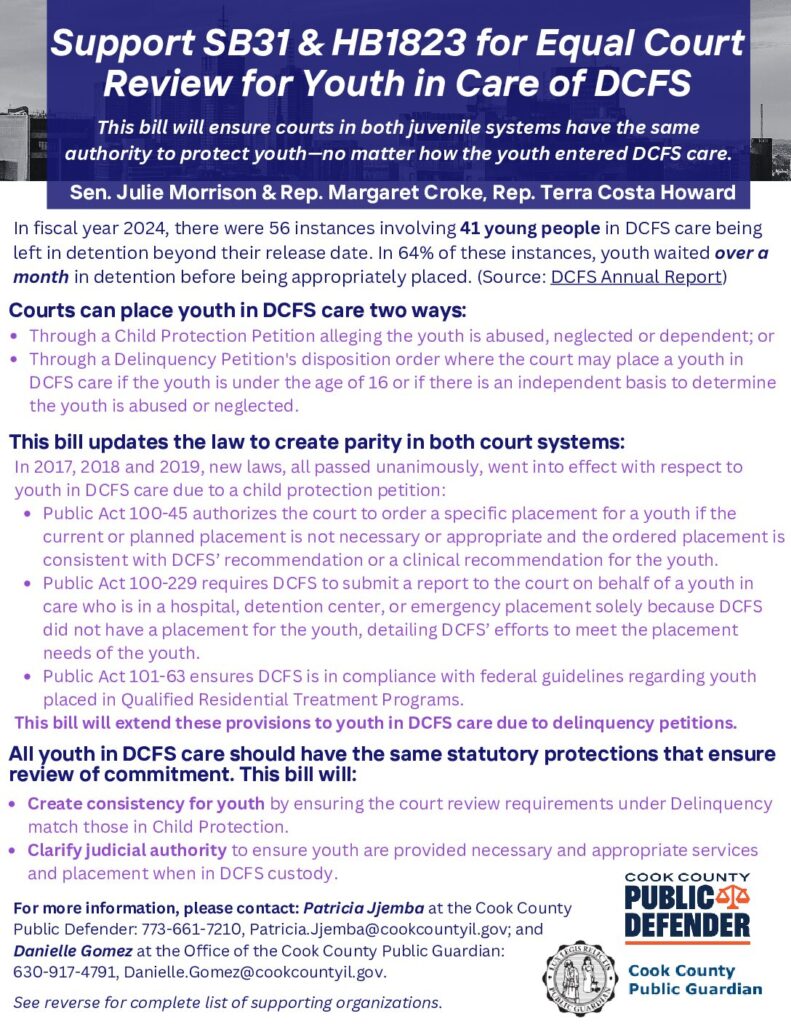Detention
This proposed draft of a legislative “findings and declarations” document for a youth detention and disposition reform bill in California affirms the legislature’s commitment to make placement in juvenile detention “the exception, not the rule.” The draft findings rely on research regarding the impact of detention on young people, racial justice, developmental science, and California…
The Fifth District Court of Appeal held that gang enhancements may form the basis of a petition for habeas relief and appointment of counsel under the state’s Racial Justice Act. The court stated in relevant part: “The present petition alleges racially disparate treatment, and it identifies the statutory subsections implicated as the basis for the…
The Ohio Department of Youth Services released a report capturing data on youth who were charged with firearm-related offenses as part of the Juvenile Detention Alternatives Initiative (JDAI). “According to 2024 data submitted by Ohio JDAI sites, there were a total of 866 admissions to detention for a firearm-related charge. The majority of admissions to…
This memorandum proposes language for a detention and disposition reform bill in California. The memorandum proposes four areas the detention reform bill aims to change including: 1) clarifying the legal standard for pre-adjudication detention of youth, 2) clarifying the juvenile court’s authority to determine whether pre-adjudication detention is still necessary, 3) clarifying the standard at…
CfJJ delivered written testimony to the Massachusetts’ Joint Committee on Racial Equity, Civil Rights and Inclusion on information-sharing practices between the juvenile and criminal legal systems and federal immigration authorities. Following a review of public records requests around these practices, CfJJ found a pattern of collaboration between police, prosecutors, probation officers, and Immigration and Customs…
This is a sample “youth report to the court” document (created by a Juvenile Court Judge in Iowa), for youth who are currently under the juvenile court jurisdiction. This report is provided to young people when they appear in court, asking if they would like the space to share pertinent information and ask questions of…
“The right to have your day in court is foundational to the U.S. criminal legal system. Yet, many noncitizens in immigration detention facing criminal charges are denied this right when ICE routinely fails to produce immigration detainees to criminal court to resolve charges. In immigration proceedings, immigration judges regularly use those unresolved charges to detain…
Sample Motion for Release from Secure Detention Using the JJDPA
A sample motion asking the court to release a young person charged with handgun or firearm possession from secure detention pursuant to the Juvenile Justice Delinquency Prevention Act (JJDPA). The motion argues the young person must be released because: 1) Possession of a handgun or firearm is a status offense since it is only unlawful…
This report highlights D.C. transfer laws and discusses the current U.S. Attorney’s argument that the District of Columbia should amend its law to transfer more young people to to adult court. The report compares D.C.’s transfer law to transfer laws across the country and highlights decades of research that has concluded transfer laws do not…
The Third District Court of Appeals in Florida considered a writ of Habeas Corpus filed by petitioners India Comer and Shantearia Gaines, challenging their detention in an adult correctional center. The Court of Appeals granted the petition and issued the writ, ordering Ms. Comer and Ms. Gaines to be moved to the juvenile detention center.…
Former Secretary of the Maryland Department of Juvenile Services, Vinny Schiraldi, wrote this op-ed, discussing President Trump’s deployment of National Guard troops in Washington D.C. and the District’s intentions to repeal lower the age for trying children as adults to 12 in the Youth Rehabilitation Act. The op-ed details Vinny’s reflections and observations during his…
The United States District Court in the Eastern District of California granted a preliminary injunction in immigration removal proceedings for minor T.M., ordering her release. The District Court offered the following language in support: “Petitioner R.D.T.M. is a noncitizen who entered the United States in 2023 as an unaccompanied minor. After entry, she was briefly…
This report from the National Center for Youth Law examines the emerging policies across the United States that are likely to reverse the downward trend of youth incarceration rates.
From the conclusion” “Conclusion There is no question that the statistical picture of special education is bleak. But after its meeting of stakeholders, interviews with experts, and review of the research, NCD believes that IDEA and other related disability laws, with improved enforcement, can and should benefit at-risk students who are properly referred and served.…
The Sentencing Project released a report on adolescent gun possession cases, highlighting the harms of punishment and calling for comprehensive community-based initiatives to reduce gun violence. This report offers research on the reasons why youth carry guns, ranging from peer influence to past experiences of trauma and walks through how juvenile court systems typically respond…






















